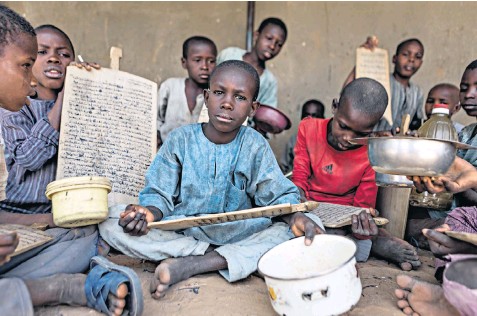
Northern Nigeria faced a severe humanitarian crisis marked by drought-induced starvation and widespread displacement. Militants kidnapped hundreds of children from schools, leaving the region in desperate need of support. Among the most vulnerable were the Almajiri, child beggars who roamed the streets daily after being sent away by parents unable to care for them. Many were forced into begging or worse, with little protection or support.
Objective
The food program aimed to create a safe and self-sufficient environment for 100 Almajiri by establishing a vegetable garden and hen house. The initiative sought to:
- Reduce begging among the Almajiri
- Foster self-sufficiency
- Provide job skills training
Key Achievements
Selection and Setup
- School selection: a Quranic school was chosen, with all seven teachers fully onboard.
- Project management: Martin Peter, an experienced engineer with a humanitarian background, was appointed as the project manager.
- Funding: initial funds were secured, and a bank account with fiduciary oversight was established.
- Construction: groundbreaking for the vegetable garden and hen house was completed next to the shelter where the 100 Almajiri resided.
Project Plan
- Garden and hen house setup: constructed a large vegetable garden and hen house on a vacant lot. The Almajiri participated in growing food, learning job skills, and achieving self-sufficiency.
- Training: provided practical farming and basic bookkeeping training to ensure long-term sustainability.
- Income generation: up to 40% of the chickens were sold to local villagers, with the proceeds reinvested to expand the project or support older Almajiri in starting their own businesses.
- Monitoring: conducted a baseline survey to track the number of Almajiri who begged daily, with the goal of reducing this number to zero at the school by the end of the year.
Challenges and Opportunities
Operating in Northern Nigeria presented significant challenges due to the unstable environment and political complexities. However, the project showed considerable potential for impact. Martin Peter’s extensive experience and expertise were instrumental in overcoming these obstacles.
Future Plans
The project is currently on hold due to funding constraints. If revived, it will continue to address the needs of the Almajiri, aiming to provide them with a safer, more sustainable future. The project’s success underscores its potential to make a meaningful difference in the lives of vulnerable children in Northern Nigeria.

Last updated: August 1, 2024
